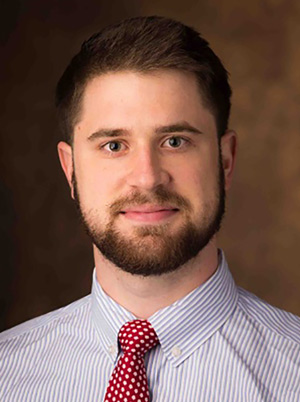 Andrei Tabara
Andrei Tabara
Category Leader, Cardiovascular and Respiratory Care
Intermountain Healthcare Supply Chain, Salt Lake City, Utah
About Andrei Tabara:
Andrei Tabara was born in Oradea, Romania, and lived there until 1999, when the family moved to West Jordan, Utah. He graduated with degrees in finance and operations management from the University of Utah.
As an undergraduate, he worked on a continuous improvement project at Huntsman Cancer Hospital in Salt Lake City, optimizing exam room usage in the oncology wards, so that neither patients nor caregivers would be rushed. “That was my first taste of healthcare and it really piqued my interest as to the challenges, both cultural and physical, with regard to improving healthcare operations,” he says.
Still an undergraduate, he listened to a presentation by a sourcing manager at Intermountain Healthcare and applied for the health system’s internship program. He has been with Intermountain ever since.
“I am very process-oriented,” he says. “I try to create infrastructure where it doesn’t exist.” For those reasons, supply chain is a good fit. “One of the emphases of operations management is supply chain. Coming out of school, I felt Intermountain would be a great opportunity to dig into that.” After five years there, he believes it has been just that. “We are very progressive in improving the supply chain – keeping the process lubricated, so caregivers get their materials on time, products are sourced correctly, etc.”
About Intermountain Healthcare:
Intermountain Healthcare is a not-for-profit system of 24 hospitals, 215 clinics, a Medical Group with 2,500 employed physicians and advanced practice clinicians, a health insurance company called SelectHealth, and other health services in Idaho, Utah, and Nevada.
Most interesting/challenging project in the past 12-18 months:
The reestablishment of the cardiac human tissue agreement. “When the contract first came across my desk I found out that our relationship with our tissue supplier was tenuous. Unfortunately, our contract had lapsed before I started in my role and the supplier was frustrated, but was allowing us to maintain our cost position. However, they were ready to move us to list if we didn’t put together a contract quickly. That said, we were looking at a price increase and a supplier whose good graces we were testing. The challenge was making a good enough argument to push the supplier to mitigate the increase, which they did, and simultaneously not alienate the negotiators on the other side. Ultimately, tact and logic won the day.”
Looking forward to:
“In the next 12-18 months, almost all of my assigned categories [e.g., cardiac rhythm, peripheral intervention] will be sourced,” he says. “This is an exciting opportunity to be innovative and think outside of the boxes we’ve historically put sourcing initiatives in. We have large opportunities to improve partnerships with suppliers, while simultaneously generating value for Intermountain and improving our cost position.”
Tabara looks forward to exploring value-based contracting, which, to him, means getting suppliers to stand behind what they market. “If a vendor comes to us with a drug-eluting stent and says its restenosis rate is 20 percent lower, I want to hold them to that. And I want to convince our key stakeholders that we need their help in keeping vendors honest on these metrics.”
Biggest challenge/change facing healthcare supply chain professionals in the next 5 years:
The proliferation of value analysis committees and the growth of value-based contracting as a counter to the maligned incentives that healthcare supply chains and suppliers face today. “Being tasked with generating savings and implementing standards, supply chain will be taking a more upfront role working with suppliers to initiate contracts and relationships revolving around joint metrics, with shared value along the value chain and, ultimately, lower costs in the form of improved outcomes for patients.”
